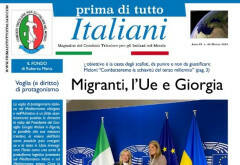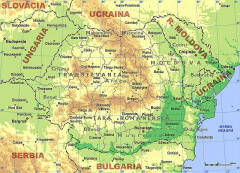Dal 1° aprile 2012 parte ufficialmente l’Iniziativa dei Cittadini Europei (ICE). Facciamo un passo indietro. Il Trattato di Lisbona ha introdotto un nuovo diritto per i cittadini dell’Unione: “almeno un milione” di loro, con “la cittadinanza di un numero significativo di Stati membri”, può “prendere l’iniziativa d’invitare la Commissione europea, nell’ambito delle sue attribuzioni, a presentare una proposta appropriata su materie in merito alle quali tali cittadini ritengono necessario un atto giuridico dell’Unione ai fini dell'attuazione dei trattati” (art. 11.4).
Un successivo Regolamento Ue, adottato il 16 febbraio 2011, ha stabilito che la raccolta di “almeno un milione” di adesioni deve avvenire in “almeno un quarto” (ovvero, ad oggi, sette) Stati membri dell’Unione, con un numero minimo di firme in ciascun paese, raccolte in forma cartacea e/o on line, entro dodici mesi dal lancio della “iniziativa”. Lancio che potrà avvenire a partire dal 1° aprile 2012: siamo dunque al nastro di partenza, e già numerose ICE scaldano i motori.
La Commissione ha attivato un sito ad hoc per seguire tutte le iniziative che saranno avviate: http://ec.europa.eu/citizens-initiative. Ogni ICE dovrà essere promossa da un comitato di cittadini di almeno sette persone residenti in almeno sette paesi diversi dell’Unione. Non potrà quindi essere promossa direttamente da reti di associazioni, che però potranno farsene promotori e sostenitori. Norme rigorose assicurano la trasparenza sulle fonti di finanziamento delle iniziative.
La Commissione esaminerà le richieste di ICE, in fase di “registrazione”, anche per verificare (entro due mesi) che non siano al di fuori delle sue competenze o in contrasto con i principi su cui si basa l’Unione. In caso di successo nella raccolta di firme, la Commissione adotterà (entro tre mesi) una risposta ufficiale, che potrà condurre alla scelta di non procedere, a ulteriori approfondimenti o all’avvio della procedura legislativa. Gli organizzatori dell’ICE avranno anche la possibilità di presentarla in un’audizione pubblica al Parlamento europeo.
Se la democrazia rappresentativa rimane il fondamento dei sistemi democratici, la democrazia partecipativa può costituirne un importante e benefico complemento. D’altro canto, la stessa architettura istituzionale europea richiede ancora importanti cambiamenti, per arrivare a un assetto federale. Sotto la spinta della crisi, anche questo cantiere si sta (ri-)aprendo, come indicano le recenti dichiarazioni del ministro degli esteri tedesco Westerwelle su una nuova Costituzione europea e le riunioni informali di alcuni governi del “Club di Berlino”.
Si badi bene: l’ICE non è uno strumento per rivolgere generiche petizioni alle istituzioni comunitarie (peraltro ogni cittadino o residente nell’Ue ha il diritto di presentare petizioni al Parlamento europeo) o per proporre riforme dei Trattati, ma “solo” per chiedere alla Commissione europea di agire nell’ambito delle politiche di sua competenza, come definite dai Trattati vigenti.
L’ICE può svolgere un ruolo importante nella costruzione di una “sfera pubblica europea”, grazie anche alla rete e ai social network, chiamando cittadini, associazioni, forze politiche e sociali a prendere posizione su temi di grande rilevo. In particolare, molti temi oggetto di un’ICE potranno orientare l’agenda su cui si confronteranno le forze politiche alle elezioni europee del 2014, guidate da un loro candidato – di partito o di coalizione – alla presidenza della Commissione europea.
L’Italia è in ritardo con le procedure di recepimento del regolamento Ue, che consentiranno l’attivazione dell’ICE. La natura transnazionale dell’ICE fa sì che i cittadini italiani possano far capo ad altri paesi, nella fase di avvio delle raccolte di firme (che però dovranno poi essere verificate da autorità nazionali di ciascun Paese). È tuttavia indispensabile che questo “deficit democratico” nazionale sia colmato in fretta, per dare anche ai cittadini italiani i mezzi per contribuire a colmare quello europeo.
* Direttore del Centro Studi sul Federalismo
(Le opinioni espresse sono dell'autore e non impegnano necessariamente il CSF).
The European Citizens' Initiative on the Starting Blocks (Flavio Brugnoli)*
On April 1st, 2012 the European Citizens' Initiative (ECI) will officially be launched. Let’s take one step back: the Lisbon Treaty introduced a new right for European Union citizens: “Not less than one million citizens who are nationals of a significant number of Member States may take the initiative of inviting the European Commission, within the framework of its powers, to submit any appropriate proposal on matters where citizens consider that a legal act of the Union is required for the purpose of implementing the Treaties” (Art. 11.4).
A subsequent EU Regulation, adopted on February 16th, 2011, specified that to collect “not less than one million” statements of support “the minimum number of Member States from which citizens must come (…) should be set at one quarter of Member States” (i.e., currently seven), with a minimum number of signatures in each country, either on paper or online, within 12 months from the launch of an “initiative”. As stated by the EU Regulation, an ECI can be launched starting from April 1st, 2012: the time has come, and several ECIs are in the pipeline.
The Commission has set up an ad hoc website to report on and monitor all the initiatives that will be launched: http://ec.europa.eu/citizens-initiative . Each and every ECI shall be promoted by a citizens’ committee composed of individuals (“organisers”) living in at least seven different EU Member States. Consequently, an ECI cannot be submitted directly by (networks of) associations, but they can obviously promote and support the initiative. Strict rules guarantee the transparency of the financial resources available for each “initiative”.
The European Commission will review the proposed ECIs during the compulsory registration phase, in order to verify (within two months) whether the proposed initiative does manifestly fall outside its power or is manifestly contrary to EU values. Following the successful collection of signatures, the Commission will reply (within three months), implying one of three possible outcomes: the decision not to follow up, to carry out further studies or to put forward a legislative proposal. The ECI organisers will also have the opportunity to present it at a public hearing in the European Parliament.
If representative democracy remains the fundamental pillar of democratic systems, participatory democracy can play a useful and effective complementary role within it. Besides that, it is becoming more and more evident that the EU’s institutional architecture still requires significant reform to establish a federal structure. Motivated by the international crisis, this dossier is about to be (re-)opened, as shown by the recent declarations of the German Foreign Minister Guido Westerwelle on the need for a new European Constitution and by the informal meetings of some governments gathered in the so-called “Berlin Club”.
It should be highlighted that an ECI cannot be used as a way to submit generic petitions to EU institutions (incidentally, every EU citizen or resident is entitled to submit a petition to the European Parliament) or to put forward proposals to reform EU Treaties, but “only” to ask the European Commission to act within the framework of its competences, as defined by the existing Treaties.
ECIs can play an important role in shaping a “European public sphere”, also thanks to the web and social networks, by urging citizens, associations as well as political and social actors to take a stand on important public issues. Notably, several issues that may be raised with and by an ECI could influence the setting of the agenda on which political parties will confront at the 2014 European elections, under the leadership of their party (or coalition) candidate for the Presidency of the European Commission.
Italy is late in the transposition of the EU’s ECI Regulation into its national legislation. Due to the ECI’s supranational features, Italian citizens can temporarily circumvent that limit by making reference to other countries in the initial phase of signature collection (to be verified at a later stage by specifically appointed national authorities for each Member State). However, this national “democratic deficit” needs to be filled as soon as possible in order to provide Italian citizens with all the necessary means to contribute to filling the European “democratic deficit”.
*Director of the Centre for Studies on Federalism
(The opinions expressed here are those of the author and do not necessarily represent the CSF).



























